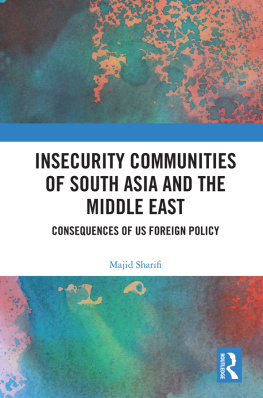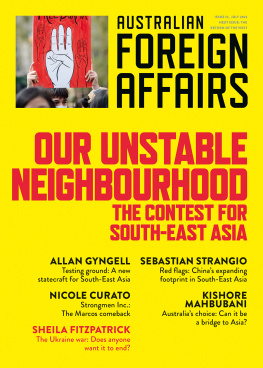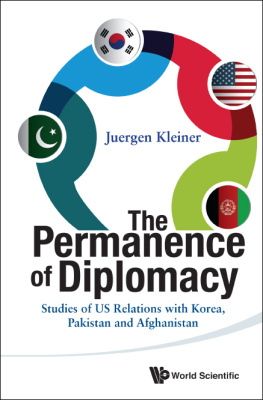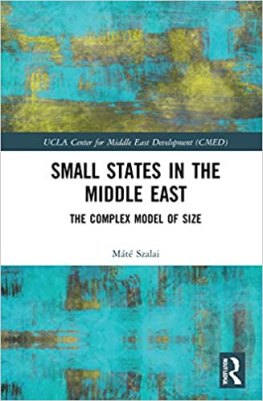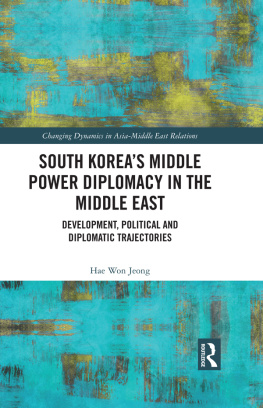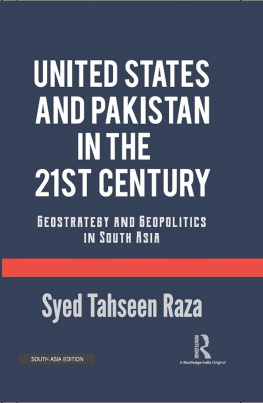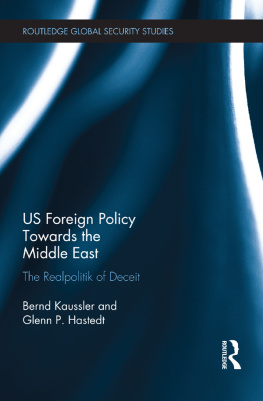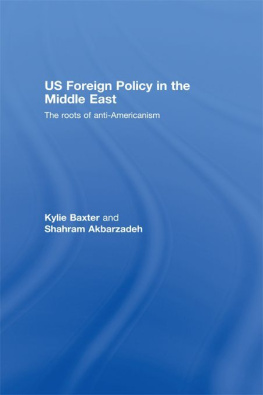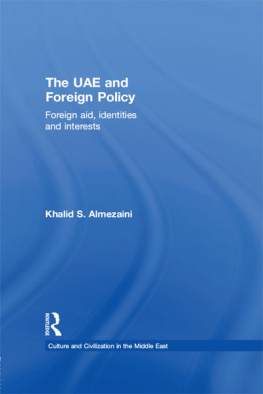INSECURITY COMMUNITIES OF SOUTH ASIA AND THE MIDDLE EAST
This book critically examines how US foreign policy has produced a regional regime of instability and insecurity in South Asia and the Middle East. It focuses on three interconnected zones of conflictAfghanistan and Pakistan in South Asia, Iran and the Persian Gulf states, and Iraq and its neighbors.
In a comprehensive historical survey, this work compares the governing behavior of these states with that of the West, where the American foreign policy establishment has, in contrast, pushed for investing in collective security. The author studies various events throughout history such as the Taliban regime; the US-led war in Afghanistan; the Obama administration and Pakistan; the first and second Gulf wars; the Arab Spring; and the rise of ISIS to present a theoretical analysis of Washingtons consistent pursuit of multibalancing and regime change wars in the region.
An important critical assessment of Western foreign policies, this book will be indispensable for students and researchers of US foreign policy, defense and security studies, strategic affairs, politics and international relations, political economy, nation-state building, identity studies, globalization studies, Middle East studies, and South Asian studies.
Majid Sharifi is Professor of Political Science and the Director of International Affairs Program at Eastern Washington University, USA. He is the author of Imagining Iran: The Tragedy of Subaltern Nationalism (2013). His book breaks new ground in connecting what he calls subaltern nationalism to the imperial nature of global governance. His research explores the intersection between security and violence on the one hand and social movements on the other. As a postcolonial scholar, he has written on decolonizing humanism, an idea drawn from Frantz Fanons writings. His current research focuses on consequences of US foreign policy in the making of the insecurity communities of South Asia and the Middle East.a
INSECURITY COMMUNITIES OF SOUTH ASIA AND THE MIDDLE EAST
Consequences of US Foreign Policy
Majid Sharifi
First published 2021
by Routledge
2 Park Square, Milton Park, Abingdon, Oxon OX14 4RN
and by Routledge
52 Vanderbilt Avenue, New York, NY 10017
Routledge is an imprint of the Taylor & Francis Group, an informa business
2021 Majid Sharifi
The right of Majid Sharifi to be identified as author of this work has been asserted by him in accordance with sections 77 and 78 of the Copyright, Designs and Patents Act 1988.
All rights reserved. No part of this book may be reprinted or reproduced or utilised in any form or by any electronic, mechanical, or other means, now known or hereafter invented, including photocopying and recording, or in any information storage or retrieval system, without permission in writing from the publishers.
Trademark notice: Product or corporate names may be trademarks or registered trademarks, and are used only for identification and explanation without intent to infringe.
British Library Cataloguing-in-Publication Data
A catalogue record for this book is available from the British Library
Library of Congress Cataloging-in-Publication Data
Names: Sharifi, Majid, 1951 author.
Title: Insecurity communities of South Asia and the Middle East : consequences of US foreign policy / Majid Sharifi.
Description: Abingdon, Oxon ; New York, NY : Routledge, 2021. | Includes bibliographical references and index.
Identifiers: LCCN 2020028403 (print) | LCCN 2020028404 (ebook)
Subjects: LCSH: Political stabilitySouth Asia. | Political stabilityMiddle East. | Regime changeSouth Asia. | Regime changeMiddle East. | South AsiaForeign relationsUnited States. | United StatesForeign relationsSouth Asia. | Middle EastForeign relationsUnited States. | United StatesForeign relationsMiddle East.
Classification: LCC JQ98.A58 S53 2021 (print) | LCC JQ98.A58 (ebook) | DDC 355/.033056dc23
LC record available at https://lccn.loc.gov/2020028403
LC ebook record available at https://lccn.loc.gov/2020028404
ISBN: 978-0-367-54318-1 (hbk)
ISBN: 978-1-003-09705-1 (ebk)
Typeset in Sabon
by Apex CoVantage, LLC
To Sheki, Jazzy, Ava, and all those who believe in the creation of a more peaceful world.
CONTENTS
PART I
The making of insecurity communities
PART II
Insecurity communities of Afghanistan and Pakistan
PART III
Insecurity communities of the Persian Gulf
PART IV
Insecurity communities of Iraq and Syria
Guide
I have heard many uninformed statements about the greater Middle East (GME) during my forty years as a citizen of the United States. One strikes me as particularly ignorant, ignoble, and even racist, yet it is so dominant in the American mediascape: they, referring to people living in the GME, have been fighting each other for 1,400 years. Such statements symbolize a recurring theme that revolves around one central idea: there are two irreconcilable and immutable civilizations. One is the Islamic Oriental civilization that values martyrdom, violence, irrational rage, and despotism, and the other, us, is the Western Judeo-Christian civilization that embraces life, peace, reason, and institutions of liberal democracy. These seemingly immutable differences leave us with no choice but to prepare for a clash of civilizations with them, as Samuel Huntington puts it. Bernard Lewis, a mainstream Orientalist scholar with expertise in the history of Islam reduces such differences to some sort of indelible rage in the collective memory of Muslims. That is why so many Muslims deeply resent the West, and why their bitterness will not be easily modified, Lewis suggests in The Roots of Muslim Rage in the September 1990 issue of The Atlantic.
Since Americas interventionist policies began in the GME after WWII, this irrational rationality of us versus them has been often repeated, reinforced, and reproduced by what could be called the American foreign policy establishment (AFPE). Made up of the best and brightest academics in American universities, journalists, pseudo-scholars and entrepreneurs in think tanks, and policymakers, the AFPE is the main source producing the science behind this binary mentality that shapes Americas relations with the GME and its people. By the GME, I am interchangeably referring to South Asia and the Middle East, stretching from Pakistan and Afghanistan in South Asia, to the Persian Gulf countries, and Iraq and Syria in the Near East. This book is an attempt to review the limitations of Americas strategic thinking in the GME and, by extension, the intended and unintended consequences of US policies in the GME compared to US relations and policies with its Western allies.
Throughout the book, I show how the United States has helped institute two different regimes of security: one for its Middle Eastern allies and the other for its Western allies. Ironically, the purpose of both regimes, as the AFPE frames them, is to defend and promote Americas self-appointed global leadership, order, interests, and values against US enemies. Yet the scientific, moral, rational, and strategic approach to the two regions has been different, especially in the aftermath of World War II. In Western Europe, the United States has heavily invested in building a regional security community by providing collective security, preventing states from balancing against each other, and facilitating interstate economic cooperation. Equally important, it has never opted for a regime change even when socialist parties it did not like came to power. But in the GME, the United States has never offered or provided collective security; it has instead resorted to the balance of power, interventions, regime change wars, sanctions, and proxy wars. As unintended consequences of such strategic differences, the politics of the GME have been synonymous with authoritarian rule, interstate conflict, insurgency, civil war, and extreme violations of human rights. Together, these states constitute what I call insecurity communities of South Asia and the Middle East or, for the sake of brevity, insecurity communities of the Middle East (ICME). In contrast, European politics have been characterized by democratic institutions at home combined with regional institutions for cooperation, integration, civil engagement, and the promotion of human rights. Together these states constitute what is known as the North Atlantic security communities (NASC). Given the stark differences between the two regions, it is safe to postulate that European states play by a different political game than their counterparts in the Middle East. The result of such differences is apparent in several consequential ways.

